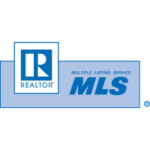One of the best reasons to invest in rental property is the number of tax deductions most owners can take. Your rental income will need to be disclosed at tax time, so having these deductions available to you will help you reduce your tax liability. Remember to talk to your CPA or tax professional for advice that better relates to your specific situation.
Rental Property Repairs
Any time you make necessary repairs to your rental property, you can write them off. The repairs must not be excessive, and they must be normal maintenance. Repainting the house, fixing the roof, and having your air conditioner serviced are all good examples of repair work that can be deducted on your taxes.
Rental Property Depreciation
Landlords are eligible to deduct a portion of the cost of their home over many years. This is called depreciation, and it will help you save money on taxes. The IRS has established that every piece of property has a life of 27.5 years. So, let’s say your property is worth $400,000. If you divide that by the 27.5 years of useful life the IRS says it has, you can deduct $14,545 in depreciation.
Professional Services
Deduct the amount you spend on professional services associated with your rental property. If you work with a professional property manager, you can deduct the management fee, leasing fee, and any other associated costs. You can also deduct what you spend on real estate attorneys, insurance agents, and accountants.
Travel to Investment Property
Keep track of what you spend on the travel to your rental property. If you have to go there to serve a notice or respond to an emergency repair, you can deduct the travel expenses. You can use either the actual cost of gas and repairs, or the IRS’s standard mileage rate.
Interest Expenses
If you have a mortgage on your rental property, you can deduct the amount of the mortgage interest. You can also deduct interest on loans you took out to improve the property. Even interest on your credit cards that you use to buy any products or services associated with your rental property can be deducted.
In 2018, some new rules went into effect. If you earn more than $25 million on rental property, you may not be able to deduct interest unless you agree to depreciate your property on a 30 year schedule instead of a 27.5 year schedule.
If you’d like to talk more about tax benefits or other benefits associated with owning rental property, please contact us at Glendale Property Management. We’d be happy to help you with any real estate or property management needs.








